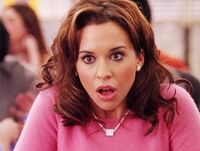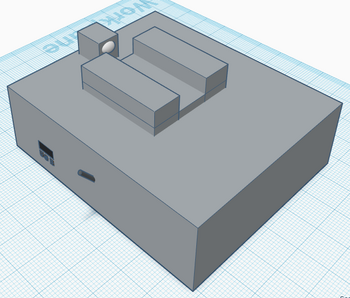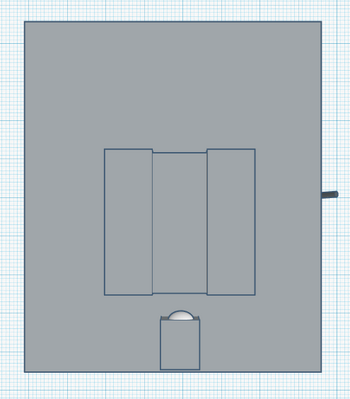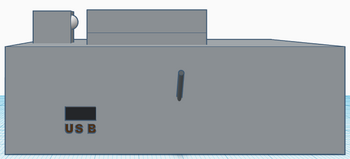BME100 s2018:Group7 W1030 L6
| Home People Lab Write-Up 1 | Lab Write-Up 2 | Lab Write-Up 3 Lab Write-Up 4 | Lab Write-Up 5 | Lab Write-Up 6 Course Logistics For Instructors Photos Wiki Editing Help | ||||||||||||||||||||||||||||||||||||||||||||||||||||||||||||||||||||||||||||||||||||||
OUR COMPANY
D-LGZ Brownie Box LAB 6 WRITE-UPBayesian StatisticsOverview of the Original Diagnosis System Between all of the groups that participated in the lab, sixteen patients were tested for a disease associated with SNP. Each group that participated tested at least two different patients, as well as a positive and negative control. For each patient that was being tested, three replicates were tested in order to test the validity and accuracy of the results. In order to make sure that we did not have any false positives or false negatives, positive and negative controls were used. After the controls were diluted, it was obvious that the disease associated with SNP was shown to be prevalent in the positive control while the disease associated with SNP was not prevalent in the negative control. By doing this, it helped the researchers compare and evaluate each patient to determine whether or not they had the disease. Three pictures were taken per calibration trial in order to reduce the amount of error. The ImageJ software was used in order to produce a calibration curve from the results. As a whole, the class had a difficult time receiving accurate results. In fact, there were two blank results from group five and five inconclusive results. Of the nine conclusive results, five of them agreed with the doctor’s diagnosis. This large error could be due to multiple issues. Primarily, our group struggled with the positioning of the camera stand and the light box. The light box let stray light in and affected our results.
From the results in calculations 1 and 2 it can concluded that the procedures for PCR and coming up with a final test conclusion is faulty. Only about 50% of PCR replicates concluded correctly that a patient has the disease while only about 72% of PCR replicates concluded correctly that a patient doesn't have the disease. While one may think that these numbers are decent, when taken into the real world this procedure can be rather detrimental towards patients because a lot will be misdiagnosed. The results that was obtained in calculations 3 and 4 are above the values of 100%. This is rather odd and it could be the case because of the amount of samples that were taken. The 100% probability state that when a final test conclusion is made that the patient does or does not develops the disease. So when a positive final test conclusion is made, the person develops the disease. When a negative final test conclusion is made, the person does not develop the disease. Some errors or flaws that could have affected the Bayes statistical values are, the photographing system was flawed, having to manually change the number of micro-liters on the pipettes, and it's hard to get the best conditions for the PCR to amplify the sample. The photographing system didn't provide accurate results. It is hard to get consistent accurate pictures if the camera had to be continually moved. This proved a problem which affected the results. Having the change the micro-liter pipettes to the exact volume could also be a source of error. This could result with human error to not provide the accurate amount of solution or sample to put in the final sample. The last error could be from the PCR machine. It can be difficult to get the exact procedure for the machine that will amplify the DNA the most. Intro to Computer-Aided Design3D Modeling We chose this design because it can be easily built and would provide an advantage over the previous design. This device has a built-in camera that takes pictures at the perfect level so that smartphones are no longer required. The pictures can then be transferred to a computer via the USB port located on the side.
Feature 2: Hardware - PCR Machine & FluorimeterThe fluorimeter will be included in our system because the machine is a bit flawed. The fluorimeter will be fixed by incorporating a camera to the fluorimeter stand where the sample is placed. The camera will be approximately 4 cm away without having to adjust the camera angle.The camera will be able to automatically adjust so that it can capture an image of the sample with as much clarity as possible. Without having to constantly move the camera, the camera is able to take consistent pictures of the sample without accidentally capturing a picture out of focus or from a bad angle. This allows the camera to provide more accurate photos. There will also be a timer attached to the camera that will count down from 10 seconds. This time will allow whoever is performing the experiment to properly cover the sample with the box just in time for the picture to be taken. This allows enough time for the sample to be completely covered so that no light gets in the way of the picture being taken. The button for the timer will be placed outside of the box making it easier for whoever is performing the experiment to have everything in place for when the picture is being taken. The stand is then connected to a computer using a USB cord allowing the image to be sent to the computer. The consistent and accurate pictures can then be analyzed providing the most accurate results. ReferencesCrossfit: Agoura Hills, Oak Park, Calabasas, Thousand Oaks, Westlake Village, CA | Precision Crossfit | “REGINA GEORGE” WOD 8/17/14. https://precisioncrossfit.net/regina-george-wod-81714/. Accessed 11 Apr. 2018. Image - 00-Look-1-Cady-Heron-Mean-Girls-Throwback-Thursday-640x480.Jpg | Heroes Wiki | FANDOM Powered by Wikia. http://hero.wikia.com/wiki/File:00-look-1-cady-heron-mean-girls-throwback-thursday-640x480.jpg. Accessed 11 Apr. 2018. Karen-Smith-Karen-Smith-5596613-398-600.Jpg. http://meangirls.wikia.com/wiki/File:Karen-Smith-karen-smith-5596613-398-600.jpg. Accessed 11 Apr. 2018. Signs You’re Mean Girls Gretchen Wieners, Lacey Chabert’s Character. http://www.clevver.com/signs-you-are-mean-girls-gretchen-wieners/. Accessed 11 Apr. 2018. | ||||||||||||||||||||||||||||||||||||||||||||||||||||||||||||||||||||||||||||||||||||||






